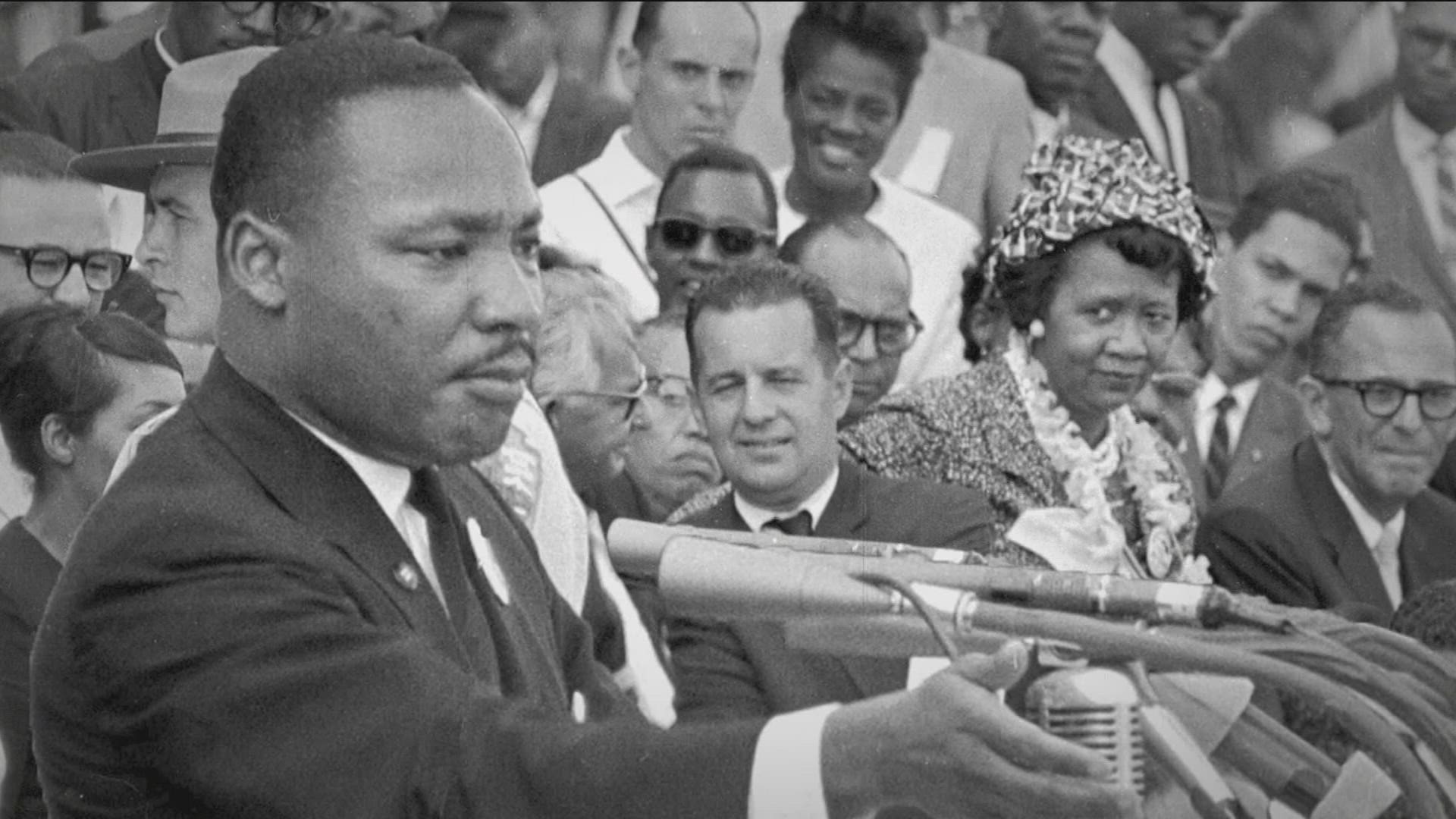ATLANTA — Chenee Coleman said her work, as the CEO of the Historic District Development Corporation (HDDC), is tied to her desire to help empower the Black community economically.
"All of our programming is really focused on the betterment of African-Americans because we know that if we make lives better for African-Americans, we make life better for everyone...I'm looking at the programming that we have, for instance, being really intentional about who we target and how we help them," she said.
The organization was started by Coretta Scott King, Dr. Martin Luther King Jr.'s wife. She spent many of her years after her husband's death working to preserve his legacies. The HDDC is one of the many projects she oversaw during her lifetime.
The purpose of the HDDC is to focus on redevelopment programs that promote inclusive growth in communities. Their projects are rooted in the Sweet Auburn neighborhood of Atlanta, a place that was an important part of King's life and work.
"We actually have a guaranteed income program that is in Georgia with the first site being right here in the Old Fourth Ward," explained Chenee Joseph, the CEO of the Historic District Development Corporation.
Joseph met 11Alive's Karys Belger at the Haugabrooks Gallery. The building was once a funeral home blocks away from King's Church, Ebenezer Baptist Church. The building was once a funeral home owned by Geneva Haugabrook, a Black female entrepreneur.
"It was an African-American woman who started this business with $300 in her pocket, $200 of a lone, 100% of her own funds, and essentially created $1,000,000 business right here on Auburn Avenue," Joseph noted.
Today, the building is a gallery where Joseph and her staff use the space to showcase the work of Black artists and find ways to support them.
"We want to bring them to Sweet Auburn, but then also provide an opportunity for people to really just enjoy what they've created, but not just focusing on the art, but also focusing on the artist as a brand, as a business."
When asked why she thinks the economic factor is often left out when discussing King's work, Jospeh said it's because that part of King's message is sometimes uncomfortable to hear.
"As a society, we like to cherry-pick the parts of his speech and parts of his work that are more palatable to us," she added.
'I've been to the mountaintop'
The day before he was killed, King gave a speech in support of a sanitation worker's strike in Memphis, Tennessee. The portion of the speech that is often quoted is about the Civil Rights leader's own morality. At one point in the speech, King says,
"I've looked over. And I've seen the Promised Land. I may not get there with you. But I want you to know tonight, that we, as a people, will get to the Promised Land. So I'm happy, tonight. I'm not worried about anything. I'm not fearing any man. Mine eyes have seen the glory of the coming of the Lord."
The portion that is often overlooked deals directly with the ways King encouraged people to engage in non-violent protest by not buying products from companies he said took part in unfair labor practices.
"Go out and tell your neighbors not to buy Coca-Cola in Memphis. Go by and tell them not to buy Sealtest milk."
Later on, he tells listeners to instead use their money to invest in Black businesses like banks and insurance companies.
"Now these are some practical things that we can do. We begin the process of building a greater economic base. And at the same time, we are putting pressure where it really hurts. I ask you to follow through here."
Keeping the Dream
On April 4th, 1968, Rev. Dr. Martin Luther King Junior was assassinated while standing on the balcony of the Lorraine Motel in Memphis, Tennessee.
Fifty-five years later, organizations like HDDC and The Atlanta Black Chambers remain committed to ensuring economic prosperity in the Black community.
The Chamber's President and CEO, Melvin Coleman, says patronizing Black-owned businesses is a good first step toward King's dream.
"Our mission is the creation and growth of competitive, profitable and sustainable Black-owned entities", Melvin Coleman told 11Alive's Karys Belger Tuesday.
The organization has partners in the state of Georgia and across the globe. Coleman says. He believes policy change at all levels will be the key to achieving true economic equity.
"We want multiple things working for us at the same time so that we can get where we need to be."

